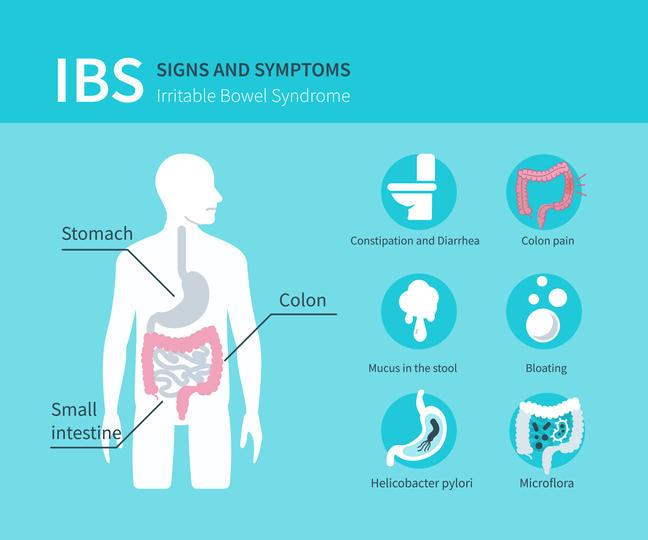Did you know bloating, abdominal pain, and a change in bowel habits justifies a call to a gastroenterologist. Irritable bowel syndrome (IBS) affects thousands of adults in Central Florida.
 Here are a few things you should know about IBS
Here are a few things you should know about IBS
Symptoms can vary
Different people experience IBS in different ways. Some have constipation, while others have diarrhea. Some people alternate between the two. Stomach aches, persistent cramping, and bloating after meals, are all symptoms of IBS.
Gastroenterologist suggests if you experience a change bowel habits, bloating, or abdominal pain, it is time to see a doctor. If you experience the sudden onset of severe symptoms, vomiting, blood in your stool, fever, or weight loss, seek prompt medical attention. It could be a sign of something more serious.
It isn’t all in the gut
It used to be thought IBS was a functional disorder. Which means medical tools are not showing any structural abnormalities, but the normal activities of the body are impaired. Which made treatment challenging and frustrating for patients.
But with extensive research and studies, we are getting closer to understanding IBS. As it turns out, how the enteric nervous system, which manages the digestive system, communicates with the spinal cord and brain both play a vital role. It is the gut and brain interaction
Women are more likely to be affected from IBS than men
IBS can affect anyone at any age. But more often than not, symptoms appear before age 50. Research has found women suffer with IBS twice as much as men.
“One recent study found that IBS pain is more severe in postmenopausal females than in either men or menstruating women. Lin Chang, M.D., a gastroenterologist at University of California, Los Angeles and coauthor on the study, is now conducting federally funded research comparing the brain-gut-microbiome interactions in premenopausal versus postmenopausal women. The researchers’ hypothesis, she said, is that when estrogen levels dip (as they do in menopause, as well as during various points in the menstrual cycle), that leads to greater dysregulation of brain-gut interactions, affecting the microbiome. This in turn could lead to bloating, pain, changes in the stool or stool frequency — basically, an increase in IBS symptoms for those who already suffer from it,” according to a recent article in AARP
Stress and infection can trigger IBS
There are many factors that contribute to the development of IBS. Some of those include a bad stomach bug, food poisoning, being under a lot of stress, having a lot of severe infections, depression or anxiety.
Lifestyle changes and medication can help
Modifications in lifestyle and medications can help manage the symptoms of IBS. It is important to pay attention to the latest research.
Gastroenterology Consultants of Central Florida is proud to be conducting research and studies in our Orlando office. Allowing you to benefit and find relief from the symptoms of IBS. Our team of skilled, Board Certified Physicians, and courteous office staff are here to make your health care experience as convenient as possible.
Contact Gastroenterology Consultants of Central Florida for more information.
